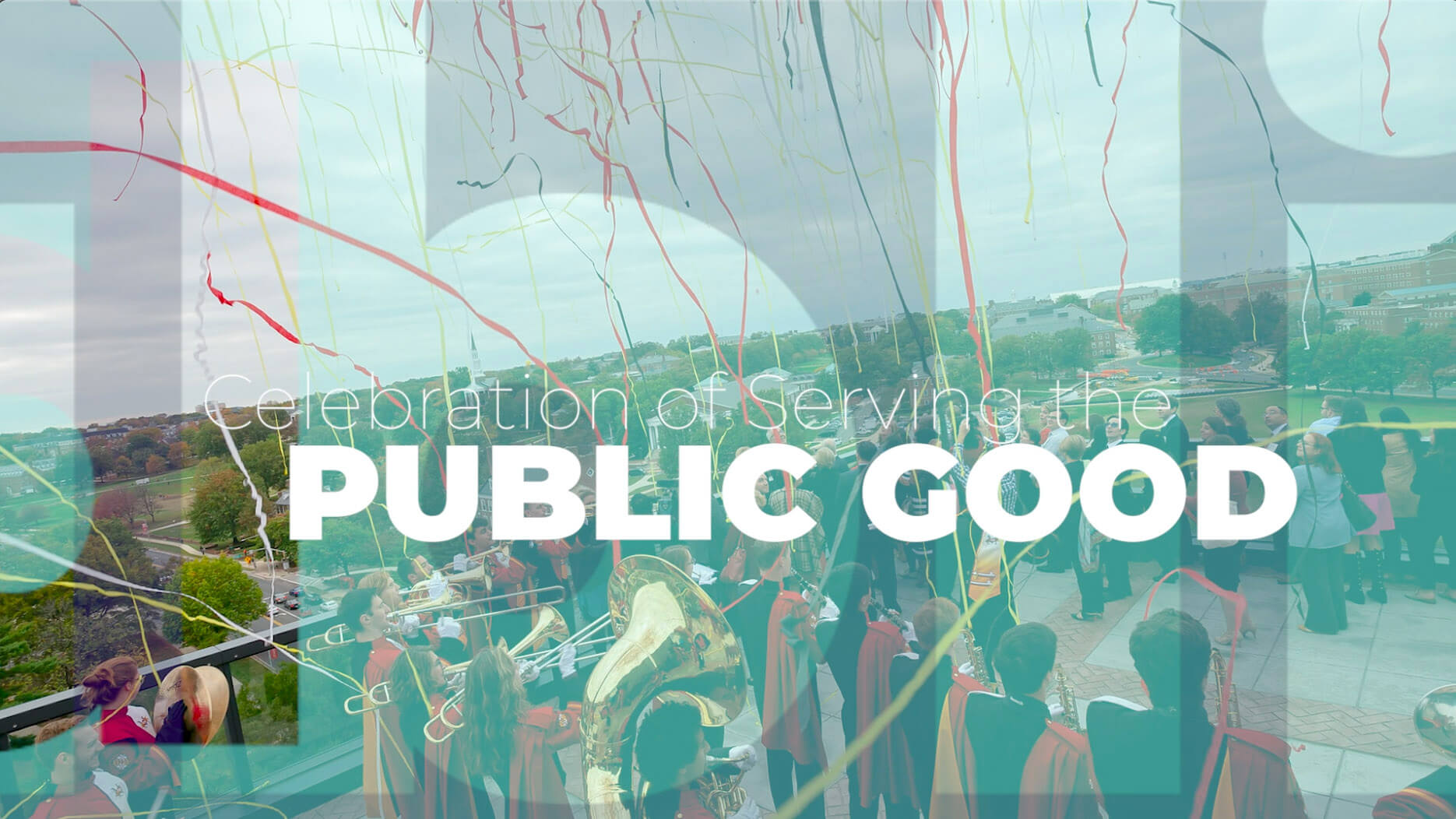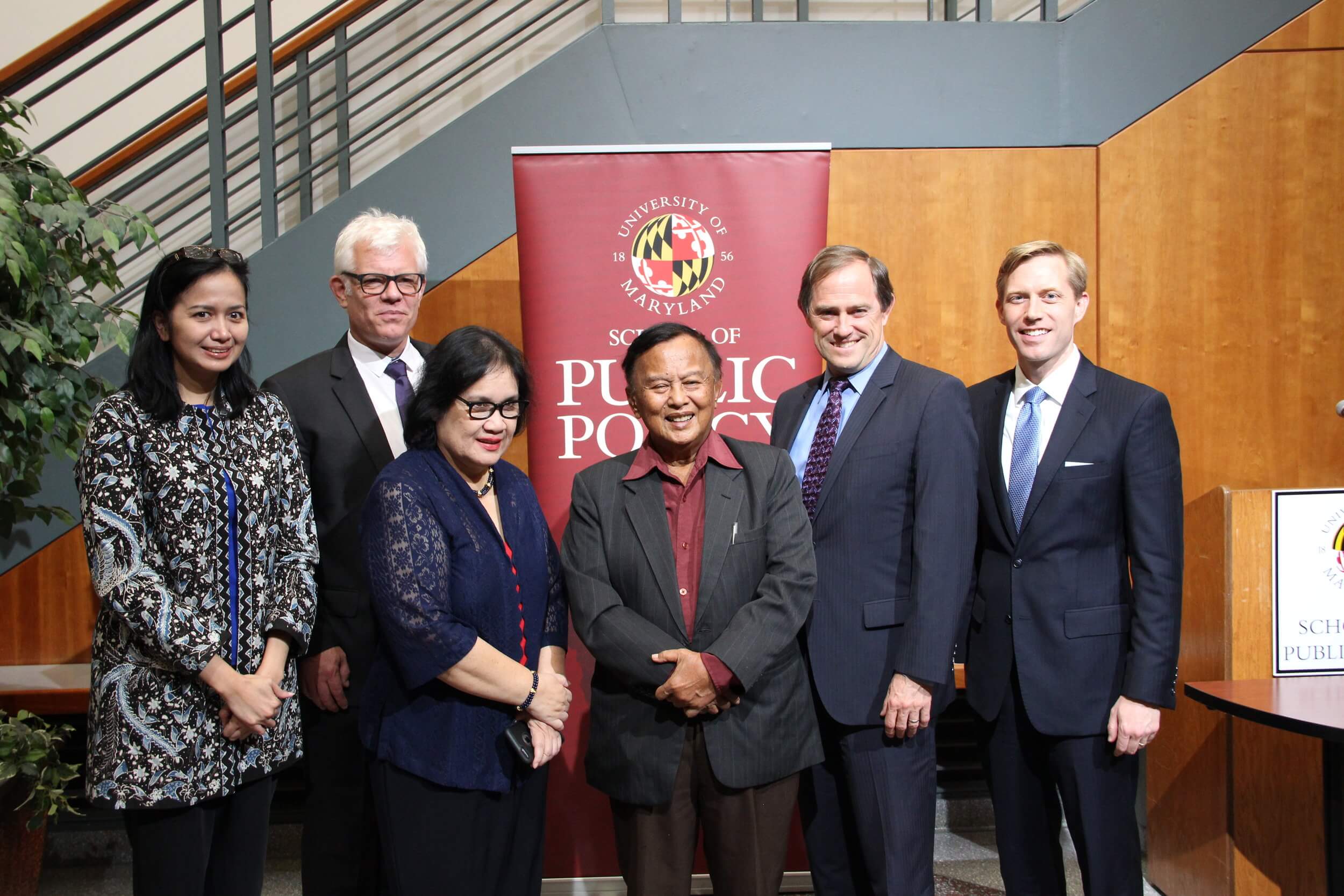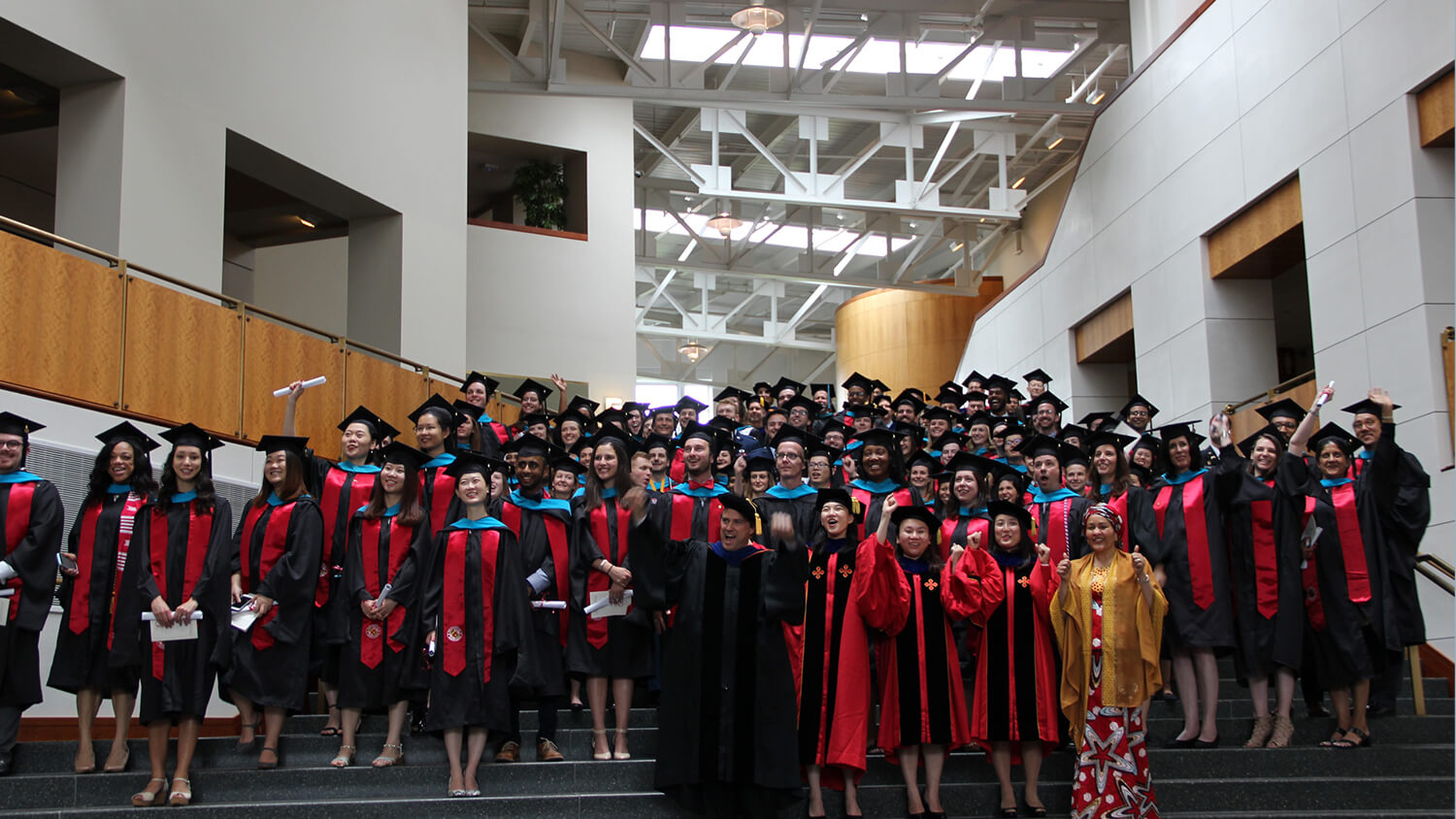Tom Hilde is a research professor in the School of Public Policy at the University of Maryland. He is the head of the environment/energy/climate/sustainability strategic focus area and co-director of the Indonesia research program at the Center for Global Sustainability (CGS). He also co-directs the university-wide Sustainability minor, serves as faculty advisor to the student-led Sustainability, Environment, and Energy Council (SEEC), and is a senior fellow at the Center for International & Securities Studies at Maryland (CISSM) and the Center for Governance of Technology and Systems (GoTech).
Hilde teaches courses in sustainable development, environmental and climate ethics and politics, and international environmental agreements. He created and has directed since 2011 the Indonesia graduate field course (Bali, Sumatra, Sulawesi, Kalimantan and Java) studying complex adaptive social-ecological systems, land use change and sustainable development at the interface between local practices and knowledge, and climate and economic policy.
He also directs the Peru field course in the Amazon rainforest and Andes, examining the conflicts between resource extraction (particularly illegal gold mining), forest conservation, and native communities, and the factor of migration due to economic and environmental pressures and conflict.
Hilde was trained in philosophy, focusing on philosophical pragmatism and political philosophy and ethics (PhD, Pennsylvania State University). He moved to SPP to join the Institute for Philosophy and Public Policy from New York University, where he had directed the Environmental Conservation Education Program and the Applied Philosophy Group. At NYU, he taught interdisciplinary seminars in environmental politics and ethics, agrarian thought, urban studies, globalization and international development. He has also taught symbolic logic and philosophy of technology at Texas A&M University.
Hilde has done work for the Heinrich Böll Foundation, the Center for American Progress, and China’s Ministry of Ecology and Environment, and has developed programs for Indonesia’s Foreign Ministry and National Development Planning Agency. Hilde was a Fulbright scholar in Venezuela in 2005 and Edmond J. Safra Network Fellow at Harvard University in 2014-2015.
Hilde edited the books The Agrarian Roots of Pragmatism (2000, with Paul B. Thompson), and On Torture (2008), a subject on which he has also given testimony to the Helsinki Commission in the U.S. Congress. He also translated (from French) Stalinism and Nazism: History and Memory Compared (2004). His most recent and current work is on the land use change and energy decarbonization nexus in Indonesia, sustainable adaptation in local social-ecological systems, illegal gold mining and deforestation in the Amazon rainforest, and philosophical pragmatism and policy analysis.
- Political philosophy & ethics; norms & compliance in international environmental law; climate change adaptation & local indigenous environmental governance systems
Addressing the formidable challenges of climate change, biodiversity loss, pollution, and the unjust distribution of environmental harms and benefits necessitates a philosophical understanding and reassessment of the ethical frameworks, norms, and concepts that inform and drive public policy and shape society. This course examines diverse modes of valuation of and obligations to the natural environment, particularly as related to the normative bases of environmental policy. Topics discussed include the different roles of economic and environmental values and norms in policy, obligations to nonhuman animals and ecosystems, obligations to future generations, biodiversity conservation, and the “slow violence” of environmental harms towards the poor and marginalized. The course considers contemporary debates in climate justice, including questions about intergenerational and intragenerational justice, the distribution of responsibilities for mitigation and adaptation among countries, inequalities and vulnerabilities exacerbated by climate change, and moral hazard and other ethical problems involved in geoengineering solutions to the climate crisis.
Schedule of Classes
School Authors: Jiehong Lou, Thomas C. Hilde, Claire Squire
Other Authors: Jonah Pereyra, Stephanie Kristina Susanto, Adhe Pradipta
School Authors: Jiehong Lou, Audrey Rader, Thomas C. Hilde, Nathan Hultman
Other Authors: Yohanna M.L. Gultom
School Authors: Claire Squire, Jiehong Lou, Thomas C. Hilde
School Authors: Claire Squire, Jiehong Lou, Thomas C. Hilde






